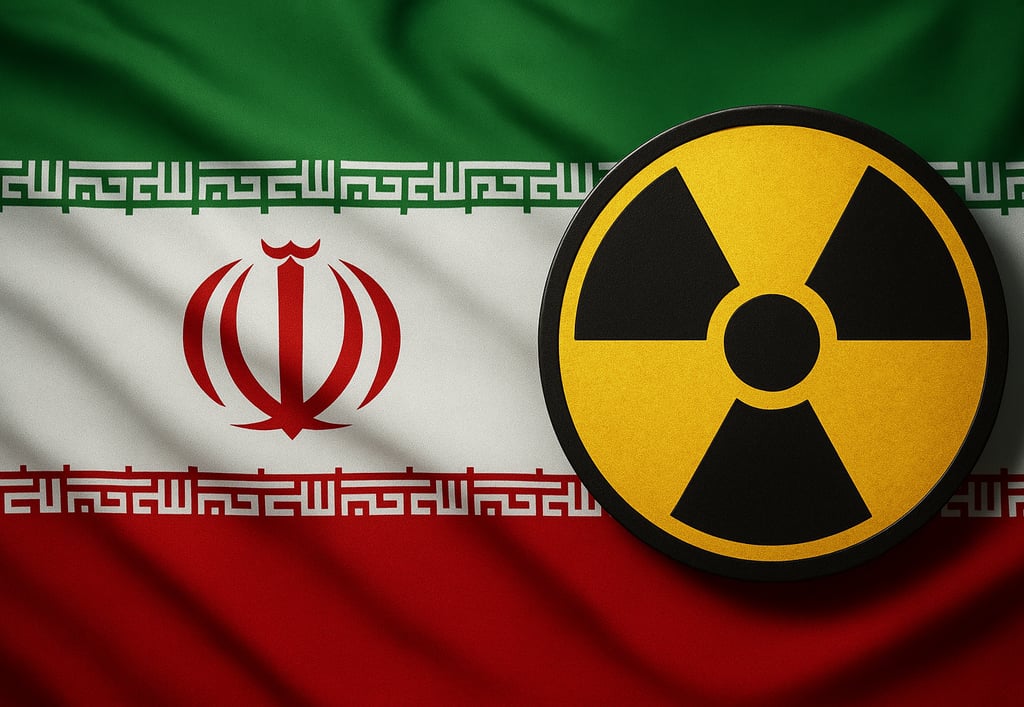Iran Nuclear Talks 2025 in Geneva: JCPOA Revival, Snapback Sanctions & Global Impact
Iran and European powers met in Geneva on Aug 25, 2025, to discuss reviving the JCPOA, snapback sanctions, and the future of the nuclear deal.
Raja Awais Ali
8/24/20252 min read


Iran and European Powers Hold Crucial Nuclear Talks in Geneva: JCPOA and Sanctions Back in Focus
On August 25, 2025, Iran and European powers held a high-level meeting in Geneva to discuss the future of the Joint Comprehensive Plan of Action (JCPOA), widely known as the Iran nuclear deal. The talks come at a decisive moment, as the “snapback mechanism” of the agreement—allowing sanctions to automatically return—expires on October 18, 2025.
What is the JCPOA?
The JCPOA, signed in 2015 between Iran, the European Union, the United States, Russia, and China, was designed to limit Iran’s nuclear program in exchange for lifting economic sanctions. Under the deal, Iran agreed to restrict uranium enrichment, allow international inspections, and pledge not to pursue nuclear weapons. In return, crippling economic and military sanctions were lifted.
However, in 2018, then-U.S. President Donald Trump unilaterally withdrew Washington from the JCPOA and reimposed sanctions on Iran. This move not only escalated tensions in the Middle East but also weakened the agreement. Since then, Iran has gradually reduced its compliance with the accord.
The Snapback Mechanism
A central clause of the JCPOA is the snapback mechanism. If Iran violates the terms of the deal, all United Nations sanctions that were lifted in 2015 can be automatically reinstated without requiring a new vote in the Security Council. This mechanism is set to expire in October 2025, which is why European nations are urgently seeking a path forward to ensure Iran’s compliance before the deadline.
What Do the Sanctions Include?
The sanctions imposed on Iran target both its economy and military capabilities:
Oil and Gas Restrictions: Iran cannot freely sell oil on the global market, severely limiting its main source of revenue.
Banking Restrictions: Iranian banks are cut off from the international financial system, including SWIFT.
Arms Embargo: Iran cannot legally buy or sell modern weapons and military technology.
Freezing Assets: Assets of Iranian leaders, institutions, and companies are frozen abroad.
Ban on Foreign Investment: Foreign companies are restricted from investing in Iran’s energy and nuclear sectors.
If the snapback mechanism is triggered, all these sanctions will be automatically reimposed, placing Iran under heavy economic and political pressure.
The Geneva Meeting – August 25, 2025
At the Geneva meeting, Iran insisted that it would only return to full compliance with the JCPOA if all economic sanctions were permanently lifted. European countries, however, warned Tehran that without significant flexibility, the snapback mechanism could be activated, bringing back the strictest sanctions. The United States did not directly participate but closely monitored the talks, signaling its influence on the outcome.
Conclusion
The August 25 talks in Geneva represent a turning point in the future of the JCPOA and Middle Eastern stability. If the deal is revived, it could ease tensions and stabilize global oil markets. If it collapses, Iran may face renewed sanctions that could deepen its economic crisis and escalate regional conflict. For now, the world waits to see whether diplomacy will succeed or sanctions will return.
Stay informed with the latest national and international news.
© 2025. All rights reserved.